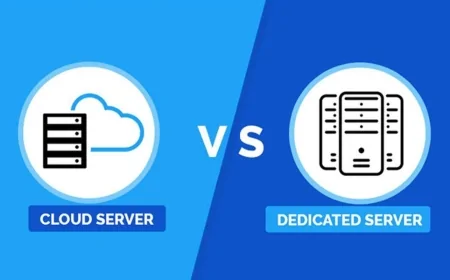What Makes A Good WordPress Theme For Small Business?
WordPress is the most popular website-building platform on the internet, powering just under a third of all the sites on the web, and is used by businesses of all sizes in all sectors around the world. It is used for practically every kind of business website, and is a top choice for entrepreneurs and startups, as well as major companies and global brands like TechCrunch, Sony Music, and Mercedes-Benz.

WordPress is the most popular website-building platform on the internet, powering just under a third of all the sites on the web, and is used by businesses of all sizes in all sectors around the world. It is used for practically every kind of business website, and is a top choice for entrepreneurs and startups, as well as major companies and global brands like TechCrunch, Sony Music, Mercedes-Benz, and the shoe company Bata.
WordPress sites are generally built with Themes, which WordPress documentation describes as “a collection of files that work together to produce a graphical interface with an underlying unifying design for a weblog.” The files that make up the Theme are called “Templates,” and they allow the appearance and functionality of the website to be changed without making any alterations to the underlying code.
Once a business has decided to use WordPress, choosing a Theme is the next step, as it establishes the basic layout, design, and style of the site. Choosing a Theme is hardly a simple matter, however, of finding one that provides an attractive, professional-looking sample.
Universal Needs
Every business needs a website that looks good and works properly. For a Theme to deliver both characteristics, it has to have both high-quality design and coding. A website that has poorly written code in the back-end may look nice, but fail to function properly or break down as you attempt to customize it. A website with well-written code and a nice-looking sample page, but a lacklustre design, may not look the way you want when you are finished customizing it.
An important element of both functionality and professional, on-brand appearance is responsiveness, which refers to how the site shows up on different devices. Many websites are built on a desktop computer, but fail to resize properly for mobile devices. It is also not safe to take the word of a Theme’s marketing material that it is completely responsive. Check any user comments available to see if there are complaints about the way it looks on tablets or other devices, and once you have selected a Theme, test its responsiveness thoroughly to avoid losing all the customers the page won’t load properly for. If it is not convenient to test the page on a variety of devices, Google offers a responsiveness testing tool so you can still be certain your site will look and work the way you want it to, regardless of what kind of device your site visitors are viewing it on.
Most businesses will want a Theme that allows them to customize their WordPress website with a drag-and-drop interface. This enables you to customize the website without the coding skills of a programmer. If you are motivated to perform more complex customization, look for a Theme that offers shortcodes, which are small code samples that are meant to be cut and pasted into the site.
Another common need that some Themes fail to meet is a full range of colors and fonts. Even if you don’t have a specific color scheme or style of text in mind, the limitations imposed by Themes with only a few options are likely to force you to make unnecessary compromises on site appearance, preventing the business from being shown in its best possible light.
Beyond these basic criteria for a good WordPress Theme, there are some considerations specific to the kind of website your business needs.
Retail Site
E-commerce functionality is important for any retail site, but the quality of the catalog is even more crucial – if your products or services are hard to find, displayed poorly, or difficult to update and manage, your customers are unlikely to reach the purchasing stage.
There are several popular catalog plugins for WordPress, such as Posts Table Pro, WooCommerce Product Table, WP Catalogue, Product Catalog, and WordPress Catalog. They mostly share similar basic features but have different strengths in terms of functionality. Whichever plugin you choose, make sure it is easy to update; otherwise, keeping your site aligned with your actual inventory will be a constant headache.
An important thing to keep in mind when choosing a Theme is that not all Themes will be compatible with every plugin, so determining what catalog plugins a Theme supports is a major part of evaluating it for an e-commerce site.
The plugin that manages transactions is also important. Not only does it need to accept payments in the right form for your customers, it needs to meet increasingly high standards of security and usability. Research by ecommerce tools provider Barilliance indicates that 15 percent of incidents of online shopping cart abandonment are caused by security concerns, and 9 percent by a long and confusing checkout process.
Media
For a media business’ website to be effective, it has to be able to deliver its media files on demand without errors or lag. This makes plugin compatibility a key determining factor in which Theme to select, to deliver your content the way you want to.
Performance is important for all sites, but particularly critical for all media sites, as the relatively large amounts of data that must be transmitted from the site to the visitor can easily be bogged down. A lightweight Theme – meaning one that with “clean” code, in which every line that must be processed is doing work essential to delivering the website. This is one of the main differences between more costly “premium” Themes and most inexpensive or free options – professional programmers tend to write cleaner code than enthusiastic amateurs, making their Themes “light” and fast.
Membership
Community websites that use a paywall or otherwise restrict access to certain content or areas generally rely on plugins like MemberPress, Restrict Content Pro, or Paid Member Subscriptions.
Sites with community forums use a plugin like bbPress or BuddyPress to set up and manage them. There are many Themes that come with one of those or a similar option integrated, which helps keep things simple.
Depending on the specifics of your business, you may also want your membership or community website Theme to also come with capabilities like a user rating system and email list integration.
Whatever kind of business you are thinking of running your WordPress site on, there are good Themes out there for you to choose from. Once you have decided what plugins you need to meet your business’ needs, and considered the other characteristics or features you need from your theme, or even for help figuring those things out, give us a call, and we’ll get you started.
What's Your Reaction?
 Like
0
Like
0
 Dislike
0
Dislike
0
 Love
0
Love
0
 Funny
0
Funny
0
 Angry
0
Angry
0
 Sad
0
Sad
0
 Wow
0
Wow
0










































